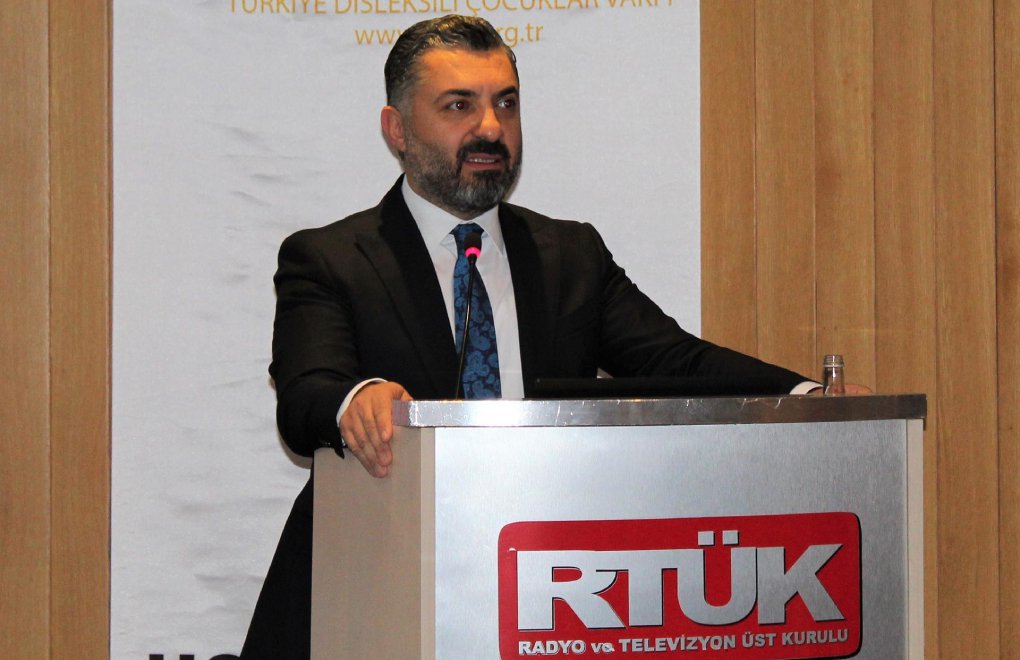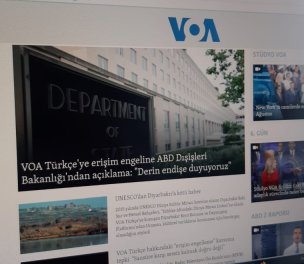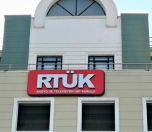US State Department, VOA criticize Turkey over 'licensing obligation' for foreign news outlets

RTÜK Chair Ebubekir Şahin
Click to read the article in Turkish
The US State Department and Voice of America, as well as international journalism groups, have criticized Turkey's decision to impose new obligations on three foreign-based news outlets.
The Radio and Television Supreme Council (RTÜK) on February 8 notified Voice of America, Euronews and Deutsche Welle that they should obtain a license for their Turkish websites within 72 hours.
"VOA believes any governmental efforts to silence news outlets is a violation of press freedom," a VOA spokesperson, Bridget Serchak, told the outlet's Turkish service.
"Should the Turkish government formally block our websites, VOA will make every effort to ensure that its Turkish-speaking audience retains access to a free and open internet using all available methods," she said.
A US State Department spokesperson quoted by VOA said they were aware of the reports and added, "Our concerns regarding press freedoms in Turkey are well documented and we continue to urge Turkey to respect and ensure freedom of expression."
CLICK - 'RTÜK head wants no news to be reported, no criticism to be leveled at government'
CPJ: Harassment of media outlets
The Committee to Protect Journalists (CPJ) said Turkey must allow all news outlets to work freely, and should not use licensing regulations to harass or censor international outlets.
"The Turkish media regulator's reported ultimatum issued to Euronews, Voice of America, and Deutsche Welle is worrying and could severely limit their ability to work in the country," said Gulnoza Said, CPJ's Europe and Central Asia program coordinator.
"News outlets should not have to guess at the government's licensing requirements; the RTÜK must immediately disclose any changes affecting those broadcasters and give them ample time to comply with new policies."
Said also noted that the decision came ahead of the parliamentary and presidential elections scheduled for mid-2023, which she said means that it is a move to control independent reporting.
IPI: RTÜK has a bad track record
The International Press Institute (IPI) also raised concerns about media harassment, saying that the new decision would put international media operating in Turkey under state scrutiny and risk making them the target of fines and broadcast bans.
RTÜK has a "proven pattern of harassing independent media over critical coverage of the government" and a "vaguely defined" 2019 regulation authorizing it to supervise online broadcasting caused concerns due to the wide scope of RTÜK's authority, ranging from on-demand platforms to regular and/or scheduled online broadcasts to amateur home video makers.
RTÜK authorized to inspect online broadcastsAccording to the "Regulation on Radio, Television and Voluntary Online Broadcasts" published in the Official Gazette on August 1, 2019, Internet platforms such as Netflix have been obliged to get a license from the RTÜK. These websites also have to establish a company and pay taxes in Turkey so that they can continue operating in the country. The objective of the new legal regulation was explained as follows in the Official Gazette: "The objective of this regulation is to establish procedures and principles as to the online broadcast and transmission of radio, television and voluntary broadcasting services; the broadcasting licences to be granted to media service providers and the authority of broadcast transmission to be given to platform operators; and the inspection of the related broadcasts." It has also been indicated in the Gazette that the regulation in question will apply to "the private media service providing institutions that engage in online radio, television and voluntary broadcasts and the operators of these platforms that provide these broadcasting services." |
(HA/VK)









-132.jpg)
